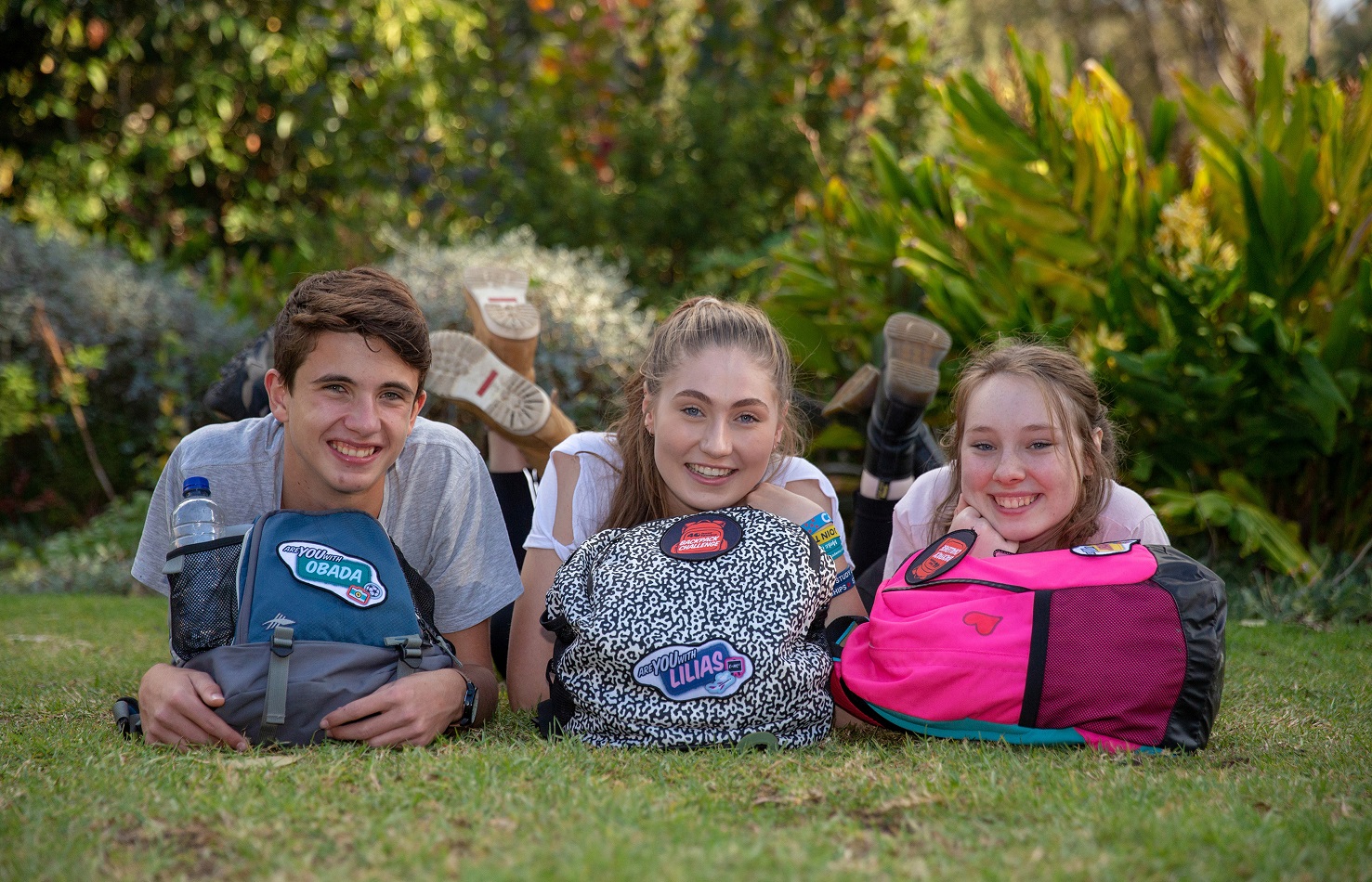Young Australians fear they could become a refugee
Monday, July 30, 2018

Half of young Australians have wondered about the possibility of becoming a refugee. A new national survey from World Vision also reveals a startling one in five believe it is a definite possibility and it could happen to anyone.
The report, 'Australian Youth on the Global Refugee Crisis', offers a fascinating insight into the perception of youth on the world's biggest humanitarian emergency – 68.5 million people are forcibly displaced around the world, the largest number in history.
The report reveals the impact the crisis is having on a generation growing up within a 24-hour news-cycle of families fleeing, separated and languishing in refugee camps indefinitely.
The survey findings come as World Vision launches the nation’s most iconic youth fundraising event, the 40 Hour Famine Backpack Challenge. Young Australians across the country will live out of a backpack for 40 hours and ‘step’ into the shoes of a refugee while raising funds for the crisis.
World Vision CEO, Claire Rogers said the 40 Hour Famine Backpack Challenge was widely embraced by Australia's youth last year. This survey was a 'pulse check' on the humanitarian views of young people.
"The survey clearly shows that we have underestimated the impact the refugee crisis has had on our youth,” Ms Rogers said.
“With an unprecedented additional three million displaced in just the last year - images of families fleeing from war, conflict and famine have now become the daily norm for our children."
The survey reveals young Australians as compassionate and empathetic - debunking the myth of the millennial "me" generation - with a staggering 91 per cent of young people wanting to do more to help refugees. In comparison, only one in ten (9.4 per cent) agree that Australia is doing enough through overseas aid while nearly two thirds (61.4 per cent) of young people feel we should be doing more to welcome our fair share of refugees to resettle here.
The compassion of youth for their global family stands in stark comparison to this year's lowest ever Australian aid budget in history.
Ms Rogers said that the notion of being a global citizen has always been the cornerstone of the 40 Hour Famine institution so the altruistic nature of the survey findings is not surprising.
"In the eighties Australian youth were mobilising change for drought affected global communities, so it was a natural progression to address the current refugee crisis." she said.
Many students had also given considerable thought to how they would survive if they were forced to escape a conflict, the survey showed.
When asked what they would pack if they were forced to flee, the 'selfie' loving millennials - often criticised for being materialistic and even narcissistic - surprisingly prioritised food and water (64.3 per cent), identification documents (56.6 per cent) and money (51.6 per cent) ahead of their mobile phone (23.6 per cent) which ranked a significantly lower fourth.
"While it is encouraging to see young people’s highly practical responses to questions regarding survival, it is concerning that these are scenarios that our children have thought seriously about," Ms Rogers said.
The report's overwhelming conclusion is that youth want to support the most pressing and important issues of the day and the refugee crisis is high on that agenda.
"There is a growing movement of young people – a community of change makers – wanting to make a difference in the world. We should all also ensure we lift our game to address these global issues so that not another child is effected or left with the burden of solving it."
This year's 40 Hour Famine Backpack Challenge will help World Vision support the needs of refugees and displaced people around the world, including through; emergency relief; provision of supplementary food; nutrition and hygiene support and child health care; and education opportunities for children and families. For more information visit: www.40hourfamine.com.au
Further survey highlights
- 8 in 10 young people agree that 'refugees are not dangerous people’.
- Top three issues young people feel refugees face when they settle in Australia are discrimination (57.1 per cent), mental health (55.6 per cent) and language (56.1 per cent).
Note to Editor: Sample size 11-19 year olds from 163 schools across several states including New South Wales, Victoria, Queensland and Western Australia n= 1049
- Radio grabs of World Vision CEO, Claire Rogers, calling on Australia to listen to our youth.
For interviews or further information please contact:
Charmaine Waduge (senior media adviser) 0433 903 503 or charmaine.waduge@worldvision.com.au
Picture: Thousands of young Australians across the country will live out of a backpack for 40 hours from August 17-19 , to step into the shoes of a refugee and raise funds for the crisis.
Media Releases,
40 Hour Famine,
40HF,
Claire Rogers,
Humanitarian,
Young People
Back to all Results